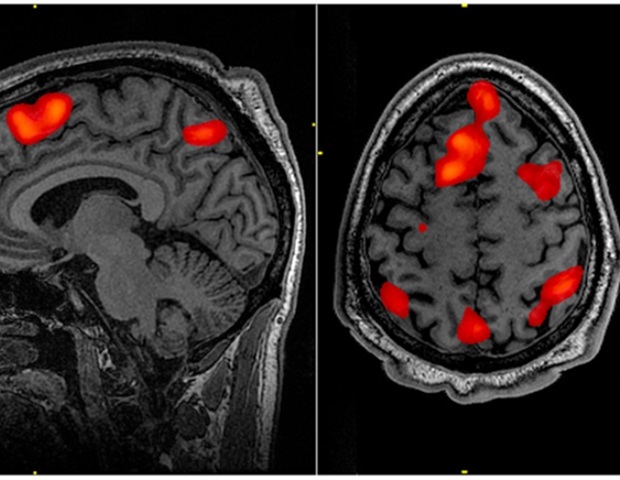 It can be challenging for teenagers, their parents, or other caregivers to navigate the turbulent adolescent years. Self-destructive behavior, which can take many different forms, including substance addiction, self-harm, dangerous actions, or even suicide thoughts, is one of the most worrying issues during this time. The good news is that there is a way to help your teen manage their behaviors, thoughts, and feelings healthily that gets them through the next few years and builds a framework for a successful future.
It can be challenging for teenagers, their parents, or other caregivers to navigate the turbulent adolescent years. Self-destructive behavior, which can take many different forms, including substance addiction, self-harm, dangerous actions, or even suicide thoughts, is one of the most worrying issues during this time. The good news is that there is a way to help your teen manage their behaviors, thoughts, and feelings healthily that gets them through the next few years and builds a framework for a successful future.
To effectively intervene and provide support, it is imperative to understand the underlying causes of their behavior and identify resources to help you and your teen during this trying time. For instance, our Help Your Teen Now team has many resources ready and waiting for you, including answers to your questions and much more. Along with our support, this blog will explore common elements that often lead to teens engaging in self-destructive behavior, such as family relationships, peer pressure, and mental health issues. It will also offer helpful advice for parents and caregivers on better assisting their teens in managing these behaviors.
Recognizing the Root Cause of Teen Behaviors
It’s important to understand that no two teens are the same, even living in the same household. Additionally, it’s essential to remember that some challenging behaviors are normal as teens begin to explore their independence and truly find out who they are. However, there is a line between normal and disruptive, which, if left unmanaged, might make it harder to rein teens in when they go too far. Consider the common root causes of self-destructive behavior below and how they may affect your teen.
Peer Pressure: Adolescents frequently experience intense peer pressure to live up to expectations set by their peers and adhere to social norms. Teens who feel pressured to fit in and receive peer approval may engage in dangerous behaviors. To blend in or get over feelings of social isolation, they may turn to drug and alcohol experimentation or risky behavior.
Mental Health Challenges: Depression, anxiety, eating disorders, and traumatic experiences can all have a substantial effect on a teen’s coping skills and emotional well-being. Maladaptive coping strategies for controlling intense feelings or upsetting events can include engaging in self-destructive conduct. Furthermore, self-destructive inclinations may become more severe if mental health conditions go misdiagnosed or untreated.
Home Environment: The influence of a teen’s family and home environment on their behavior and emotional development is significant. Be it parental conflict, abuse, neglect, or inconsistency in punishment, dysfunctional family dynamics can all lead to low self-esteem, insecurity, and mistrust of parents. Adolescents may turn to self-destructive habits to gain autonomy or as a coping mechanism for familial difficulties.
What Can Parents and Guardians Do?
Navigating the teen years can be overwhelming for everyone involved, but the tips below might make things easier.
Encourage Open Communication: Providing a safe, accepting environment where teenagers can freely share their ideas and feelings is critical. Encourage them to talk to you frequently about their experiences, feelings, and difficulties. Pay attention to what they say without cutting them off or downplaying their emotions.
Teach Teens About Healthy Coping Techniques: Assist teenagers in creating healthy coping strategies to handle stress, anxiety, or challenging emotions. Instruct them in relaxation methods like mindfulness exercises, deep breathing, creating art, or journaling. Promote healthy lifestyle choices and physical activity to enhance general well-being.
Set Explicit Expectations and Boundaries: Teens can benefit from structure and stability when parents set clear expectations and boundaries for the home. While encouraging a sense of security, consistent discipline and consequences for wrongdoing aid in establishing accountability. However, the rules should be fair and cooperatively developed, considering the teen’s autonomy and opinion.
Seek Professional Assistance: Don’t be afraid to contact a therapist, counselor, or mental health specialist if you observe your teen engaging in self-destructive activities on a regular or increasing basis. Professional involvement can offer invaluable support, guidance, and therapeutic approaches when addressing the underlying issues contributing to the behavior. In addition, our team can direct you to the right resources when needed, offering our services free of charge to get you and your teen the help you need.
Be a Good Example: Set an example for your teen by acting in a way that demonstrates sound coping mechanisms, clear communication, and problem-solving abilities. At the same time, to preserve your mental and emotional health, emphasize self-care and show empathy, compassion, and perseverance when facing obstacles. Your behavior and attitude significantly impact your teen’s coping skills and behavior.
Reach Out Today to Get the Added Support You Need For Your Teen
A comprehensive understanding of self-destructive behavior in teenagers necessitates taking into account a range of variables that affect their emotional and mental health. Parents and caregivers can help teens deal with these variables more effectively by addressing these issues and adopting workable solutions for support and intervention. Worrisome behaviors will subside, and teens will gain valuable insight into themselves and how they should react during stress and pressure. Once they can learn to control their emotions and behaviors better, their resilience and general well-being increase, which provides them with key skills they can use throughout their lifetime.
If you’re struggling with your teen, reach out to our team to see how we can help.
Sources:
https://helpyourteennow.com/contact-us/
https://helpyourteennow.com/faq/
https://helpyourteennow.com/about-us/
https://www.healthline.com/health/mental-health/self-destructive-behavior#definition
https://helpyourteens.com/how-to-handle-teen-destructive-behavior/
https://pubmed.ncbi.nlm.nih.gov/1957928/

 PARENTING TIPS
PARENTING TIPS PREGNANCY
PREGNANCY BABY CARE
BABY CARE TODDLERS
TODDLERS TEENS
TEENS HEALTH CARE
HEALTH CARE ACTIVITIES & CRAFTS
ACTIVITIES & CRAFTS

